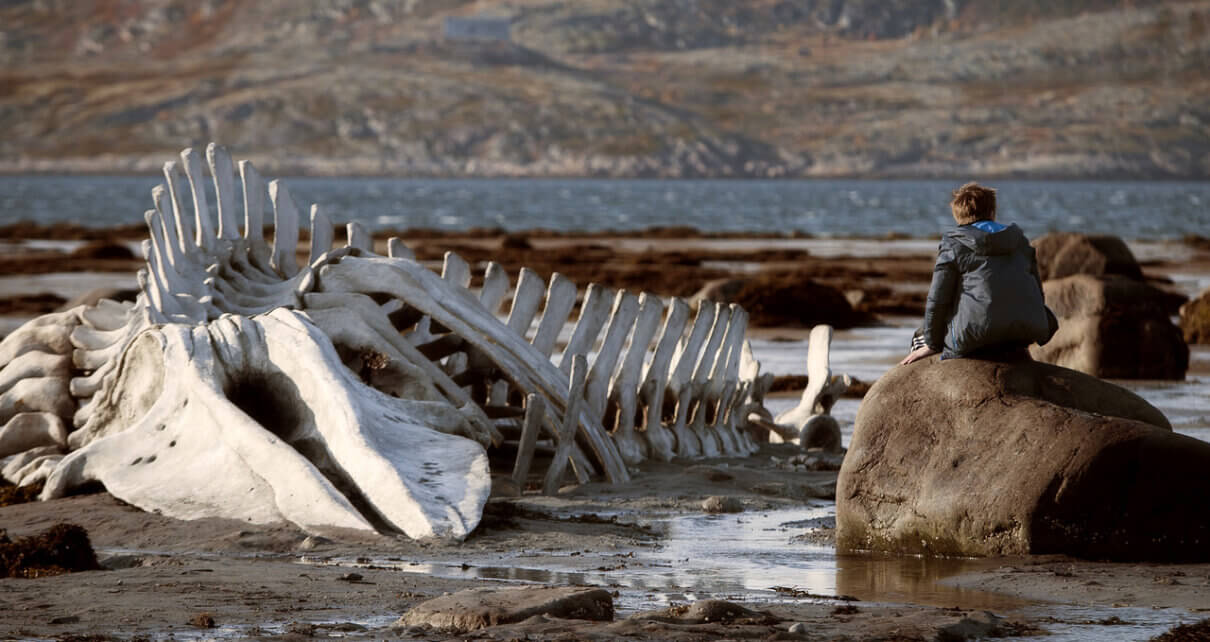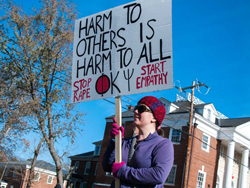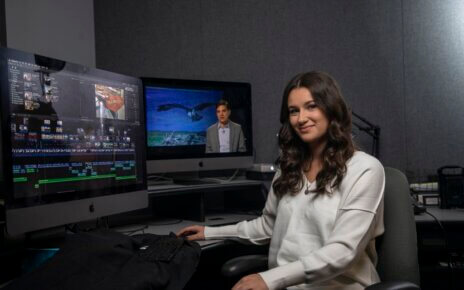The Institute for Global Understanding (IGU) and the Center for the Arts at Monmouth University held a screening of Leviathan (2014) on Thursday, Oct. 23, in Young Auditorium, Bey Hall, as part of the Pearson World Cinema Series. Thomas Pearson, Ph.D. and professor emeritus of history and Jason Adolf, Ph.D. and endowed associate professor of Marine Science, hosted the post-screening Q&A.
Directed by Andrey Zvyagintsev, Leviathan follows a man in a northern Russian town who faces the demolition of his home at the hands of a corrupt mayor. Pearson described the film as “a society and a political system that is riddled with corruption,” adding that “it shows transactions in virtually all of the behaviors and encounters seen in the film.”
Pearson noted how the film’s visual scope amplifies its political message. “In this beautiful Northern Russian setting and the Arctic Russian North,” he said, “the visual cinematography of this film is absolutely stunning.”
The discussion tied the film to the semester’s theme, “Global Transactions.” Pearson explained that Leviathan reflects not only Russia’s autocracy but also broader global issues. “One reason why I thought this would be a really good film for this particular theme, but a very timely film, is because this really just shows how corrupting autocratic politics can be,” he said. “Autocrats like Putin, like Victor Orban in Hungary, and as I even said in my comments, you know, I’m sorry to say, we’re seeing a lot in the way of autocratic politics in our country right now,” he added.
He called Leviathan “probably the best Russian film of the 21st century so far,” emphasizing how it reveals the breakdown of institutions meant to protect citizens. “The film just shows the rule of law being absolutely meaningless in this town,” Pearson said. “It shows the church head and the mayor are partners in this corruption.”
Pearson reflected on the audience response as more introspective than interactive. “There was not as much audience questions of back and forth as there was with the first film,” he said. “Most everybody afterwards was telling me really great film, really wanted to think about [it]. I said, this film, I think has the value,” said Pearson.
Closing out the evening, Pearson reaffirmed the series’ purpose: to challenge students to see cinema as education. “The whole idea is that film can not only be enjoyed, but it can be a very powerful educational tool,” he said.
The Pearson World Cinema Series, named in his honor, continues with Between Two Worlds (2021) on Thursday, Nov. 13, at 6:05 p.m. in Pozycki Hall Auditorium, as part of the “Global Transactions” series co-presented by the IGU and the Center for the Arts.




